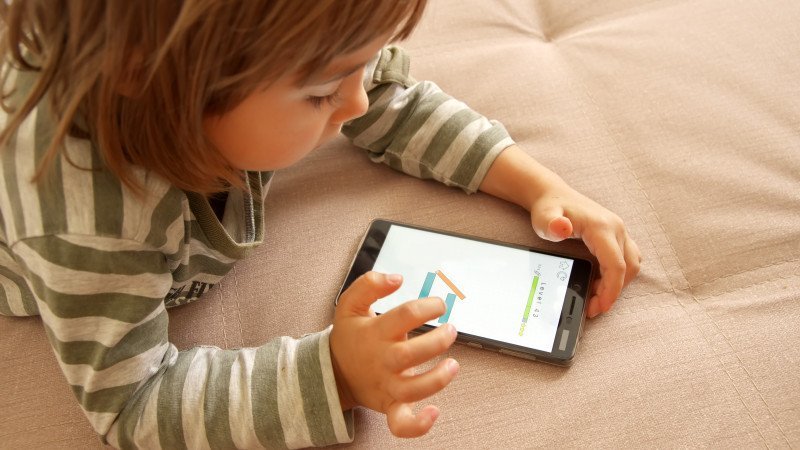In today’s digital age, smartphones have become ubiquitous, profoundly impacting every aspect of our lives, including how children grow, learn, and interact with the world around them. While smartphones offer numerous benefits, their excessive and unmonitored use can have detrimental effects on children’s physical, mental, and overall developmental well-being. In this article, we delve into the negative implications of smartphone usage on child development, explore strategies to ensure responsible smartphone usage, discuss the phenomenon of addiction, and shed light on the causes and consequences, including the various radiations emitted by mobile phones.
The Negative Effect of Smartphones on Child Development:
Physical Health:
One of the most concerning aspects of excessive smartphone usage among children is its impact on physical health. Research conducted by renowned institutions such as the American Academy of Pediatrics (AAP) indicates that prolonged screen time is associated with a myriad of health issues, including obesity, poor posture, and musculoskeletal problems. Children often spend hours hunched over their devices, leading to neck and back strain, commonly referred to as “text neck” or “tech neck.”
Moreover, the sedentary nature of smartphone usage contributes to a lack of physical activity, which is crucial for children’s overall health and development. Studies have shown that excessive screen time is linked to decreased levels of physical fitness and increased risk of chronic conditions such as diabetes and cardiovascular diseases.
Mental Health:
In addition to physical health concerns, smartphones also pose significant risks to children’s mental well-being. Excessive use of social media and online gaming can lead to addictive behaviors, anxiety, depression, and social isolation. The constant exposure to curated and often unrealistic portrayals of life on social media platforms can negatively impact children’s self-esteem and body image.
Furthermore, the blue light emitted by smartphone screens disrupts the production of melatonin, a hormone responsible for regulating sleep-wake cycles. This disruption can lead to sleep disturbances, including difficulty falling asleep and poor sleep quality, which, in turn, affects children’s cognitive function, mood, and overall behavior.
Strategies to Ensure Smartphone Responsibility:
To mitigate the negative effects of smartphone usage on child development, it is imperative for parents, educators, and policymakers to implement strategies that promote responsible usage. Some effective strategies include:
Establishing clear guidelines and limits on screen time: Set specific time limits for smartphone usage and encourage children to engage in alternative activities such as outdoor play, reading, and creative hobbies.
Encouraging open communication: Foster open and honest communication with children about the potential risks associated with smartphone usage, including the importance of balancing screen time with other activities.
Leading by example: Be mindful of your own smartphone usage and model healthy screen habits for children to emulate.
Implementing parental controls and monitoring tools: Use parental control features to restrict access to inappropriate content and monitor children’s online activities to ensure their safety and well-being.
The Phenomenon of Addiction:
Smartphone addiction, also known as nomophobia (fear of being without a mobile device), is a growing concern among children and adolescents. Addiction to smartphones is characterized by compulsive and excessive use, leading to neglect of other responsibilities and activities.
Research suggests that smartphone addiction is driven by various factors, including the instant gratification provided by social media likes and notifications, the fear of missing out (FOMO), and the escape from real-life stressors. The consequences of smartphone addiction can be severe, impacting academic performance, interpersonal relationships, and mental health.
Causes and Consequences of Smartphone Usage:
In addition to addiction, smartphone usage poses risks due to the radiation emitted by mobile devices. While the long-term effects of exposure to electromagnetic radiation are still being studied, some research suggests a potential link to increased cancer risk, particularly among children whose developing brains and bodies may be more vulnerable.
Moreover, excessive smartphone usage can lead to a phenomenon known as “phantom pocket vibration syndrome,” where individuals experience false sensations of their phone vibrating in their pocket, even when it is not. This constant connectivity and reliance on smartphones can exacerbate anxiety and stress levels.
Why Smart Phone is a Big ‘No’ for Kids:
Given the multitude of negative effects associated with smartphone usage, especially among children, it is crucial to adopt a cautious approach towards their use. Organizations such as the World Health Organization (WHO) and the Centers for Disease Control and Prevention (CDC) recommend limiting children’s exposure to screens, particularly during formative years.
Smartphones should be considered a complete ‘no’ for kids due to their detrimental impact on various aspects of development, including physical health, mental well-being, and social interactions. Parents and caregivers must prioritize real-world experiences and human connections over excessive screen time to ensure the holistic development of children.
What Research Suggests:
According to a report by Common Sense Media, children aged 8 and under spend an average of 2 hours and 19 minutes per day on screen media, with mobile devices being the most commonly used platform. Furthermore, a survey conducted by Pew Research Center found that 95% of teenagers have access to a smartphone, and 45% report being online ‘almost constantly.’
These statistics underscore the pervasive nature of smartphone usage among children and highlight the urgent need for proactive measures to address its negative implications on child development.
In conclusion, while smartphones offer undeniable benefits, their unchecked and excessive use can have profound negative effects on child development. By implementing responsible usage strategies, fostering open communication, and prioritizing real-world experiences, we can mitigate the adverse impact of smartphones and ensure the well-being and healthy development of our children.

